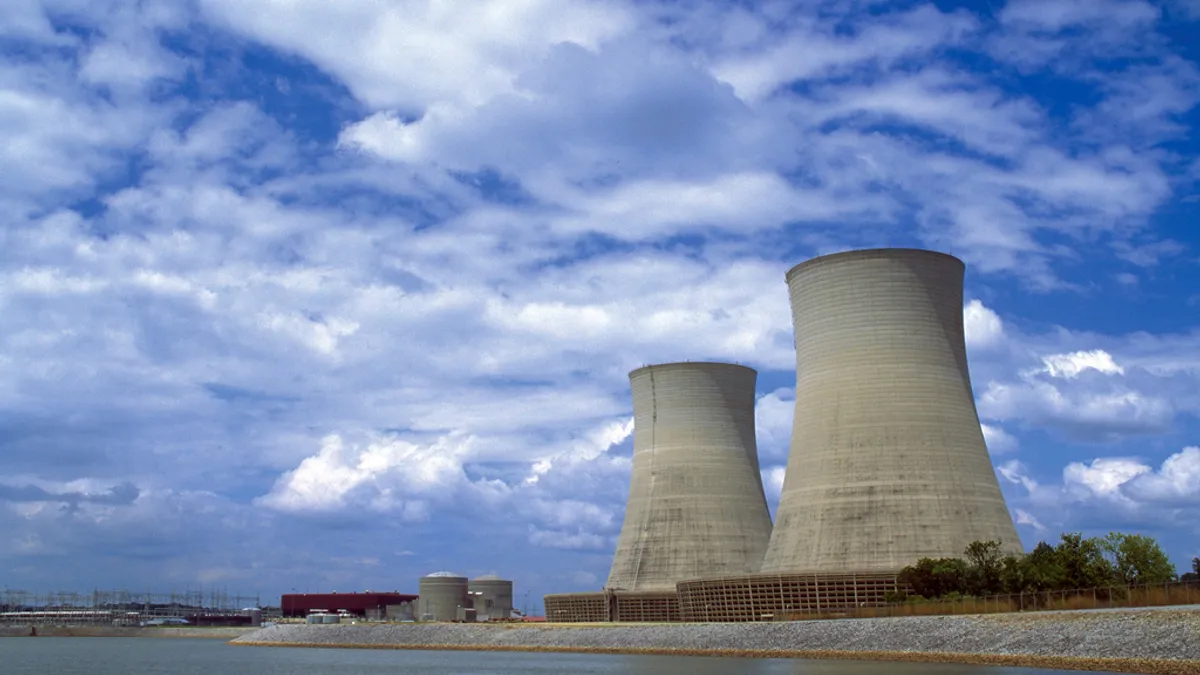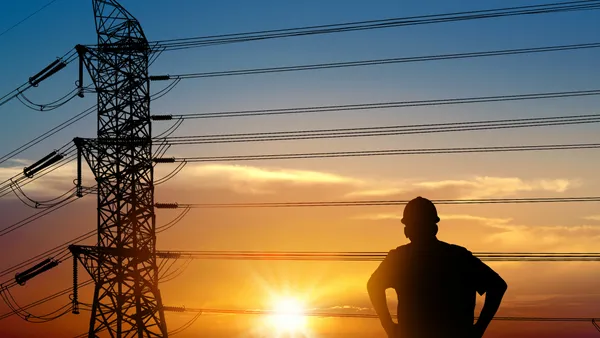Dive Brief:
- The Tennessee Valley Authority is preparing to start up the new 1,400-MW Watts Bar nuclear plant, adding the first new nuclear power to the United States grid in two decades, Energy Central reports.
- TVA said Unit 2 is expected to reach "initial criticality" in May with commercial operation in summer 2016.
- Simultaneously, the utility is moving ahead with plans to add thousands of MW of wind and solar to its mix, and has issued a request for information from potential project developers.
Dive Insight:
TVA's carbon-free generation is about to get a boost from both nuclear and renewable energy.
The utility said Power Ascension Testing activities for Watts Bar Unit 2 are ongoing, and that "significant progress has been made the past few months and testing continues to validate that Unit 2 will operate as designed."
“It is a challenging task to bring a unit into operation the first time and one we are doing it the right way, taking the actions and time necessary to deliver a safe, quality asset — that is what’s important," said Watts Bar Site Vice President Paul Simmons.
The 1,411 MW unit cost $4.7 billion, which TVA said was within the range approved by the board earlier this year. Energy Central notes that it will still raise power prices, though the utility is making efforts to avoid any rate shock.
The utility's Integrated Resource Plan filed last year called for bringing Watts Bar 2 online as well as adding up to 3,800 MW of solar and 1,750 MW of wind by 2033. The Chattanoogan reports TVA has issued a formal request for information from potential project developers.
That drew applause from the Southern Alliance for Clean Energy. SACE Executive Director Stephen A. Smith said the RFI "will allow wind energy and solar power companies to submit low-cost, domestic clean energy solutions. Recent extensions of crucial federal tax incentives will produce all-time low prices for wind energy and solar power resources. Those tax credits will soon begin to phase out, however, and utilities potentially risk losing billions of dollars in ratepayer savings if they delay renewable energy purchases."














